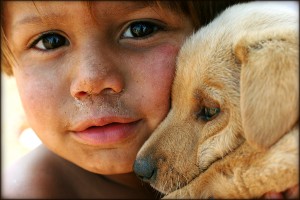Children and Funerals
How To Prepare a Child For A Funeral
The death of a close friend or family member is never easy on children and the funeral represents the most difficult period. This is where children need to interact with others – it represents a need for them to both understand what is going on and behave well, despite whatever strong emotions they may be feeling. As such, here are a few tips to keep in mind when preparing a child for such an occasion.
Explaining Death
Explaining the concept of death to a child is a difficult topic in and of itself, and that’s probably why many people think it’s actually inappropriate to take kids to a funeral. How can a child understand seeing someone they knew if they aren’t aware of their death? In the youngest of people, this can lead to a lot of confusion. Even a basic understanding of death will help children understand the funeral. It will also give the event purpose and help kids realize its significance, but the talking needs to happen before the funeral.
Explain The Process
Similarly, you should always explain the process of events to a child before they attend. While they might not understand or appreciate every detail, you need to ensure they understand the vital parts, such as lowering caskets or cremating the body (depending on the nature of the funeral in question). This way, they won’t be surprised when such things occur, allowing the procedure to carry on without children interrupting or asking too many questions. The same can also be said for the funeral etiquette and dress code – let children know in advance, so you don’t upset or surprise them with formal clothing on the day itself.
How To Dress A Child
A funeral is one of those occasions where, despite protests, you need to ensure they wear a certain level of formal attire. A young child will likely not understand the need to look smart, so it’s important you take charge of this aspect. The smaller the child is, the less you arguably need to do, as nobody will expect a 2 or 3 year old to arrive in a suit. Still, they should dress in a similar style to adults: formally and with dark colors. For most boys, a white shirt will suffice, although pre-teens and teenagers can also wear a tie or suit. As for girls, a blouse will do, as will black dresses, giving you plenty of options.
Footwear
The same can also be said for shoes. Children should wear shoes of a decent formality – think along the lines of school shoes as an ideal minimal baseline. Trainers or sports shoes, for instance, will not only look wrong, but plant the wrong idea in a child’s mind. Formal shoes will remind them of school and other periods where they’ve had to behave, enforcing the importance of the events to come. It will also look more respectful, as the child can blend in with the crowd of predominantly adult attendants.
Seating and Placement
Once you’ve explained procedures and dressed the child, where do you sit at the location itself? Unless you’re of the immediate family, it’s better to sit someone near the back or sides, preferably close to the exit. This ensures children aren’t in the way – in case something goes wrong – and you can always take them outside if they become distressed. Depending on their relation to the deceased in question, children may be very upset, or even just curious, so it helps to be near an escape route so as not to disturb proceedings.
As you can see, there are a number of key differences between how children and adults experience how to plan a funeral, so it’s important for parents and other caretakers to step in and take care of children. Funerals can be a tough time but children have a right to understand what’s going on. With these tips, you should be able to prepare any child for a respectful and peaceful funeral.
About The Author: Robert Bruce has a passion for lending his voice towards multiple issues involving the funeral and memorial industry. When he’s not working with Great Lakes Caskets, he enjoys his hobby as a writer.







